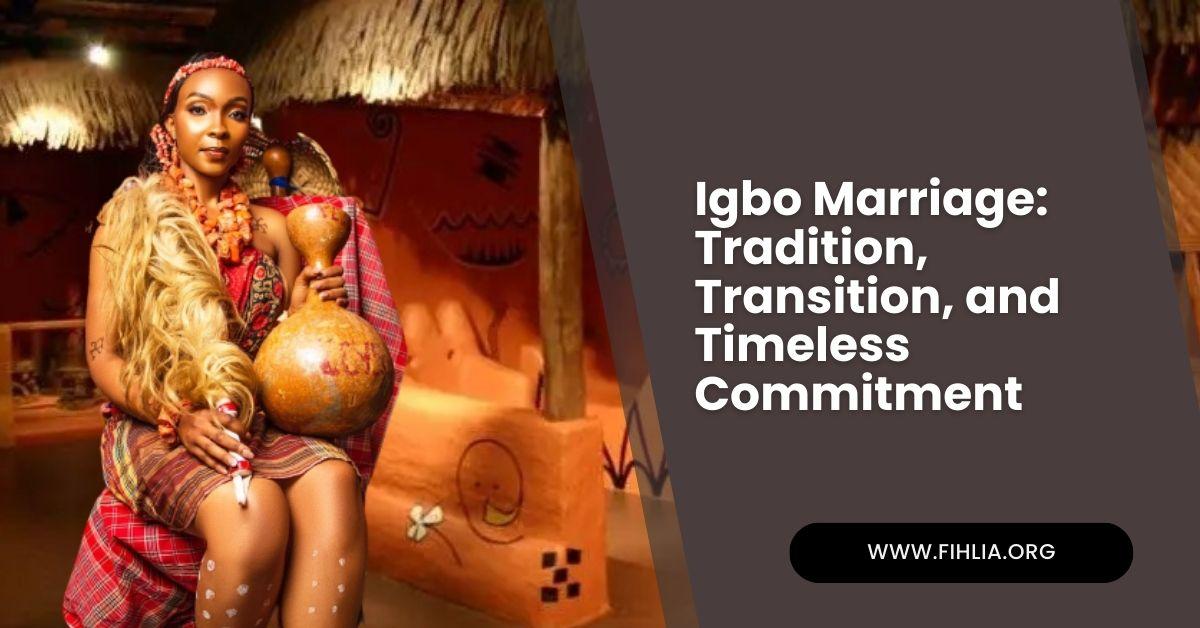Marriage is a sacred institution that transcends time and place, and in Igbo culture, it is no different. Steeped in tradition and ritual, Igbo marriages are a reflection of the values, beliefs, and customs that have shaped this vibrant culture for generations. In this article, we embark on a journey to explore the intricate tapestry of Igbo marriage, from its traditional roots to the evolving dynamics of contemporary unions.
The Path to Matrimony: A Time-Honored Journey
The journey to marriage in Igbo culture is a carefully orchestrated process, filled with meaningful rituals and profound symbolism. It typically begins with the man seeking the consent of the young woman he intends to marry. This act of seeking consent is a testament to the respect and acknowledgment of the woman’s agency in the decision.
Once consent is granted, the families of both the man and woman play pivotal roles. The man’s family introduces him to the woman’s family, and vice versa. This formal introduction is a significant step, as it symbolizes the merging of two families into one. It also serves as an opportunity for both families to assess one another’s character and background, ensuring compatibility and harmony.
Dowry and Traditional Rites: The Heart of Igbo Marriage
In Igbo culture, marriage is not considered binding until two essential elements are in place: the payment of the bride’s dowry and the performance of traditional marriage rites. The dowry, known as “bride price,” is a symbolic gesture of appreciation to the bride’s family for their consent and support. It is a tangible expression of the groom’s commitment and readiness to assume the responsibilities of marriage.
Traditional marriage rites are a culmination of cultural and spiritual rituals that cement the union. These rites vary among different Igbo communities but typically involve ceremonies, blessings, and symbolic gestures that invoke the blessings of the ancestors and the gods. The observance of these rites is a testament to the depth of Igbo cultural heritage and its profound influence on the institution of marriage.
Ili-Enyi: The Stigma of Illicit Relationships
In Igbo society, a relationship that lacks the formalities of dowry payment and traditional rites is described as “ili-enyi,” which translates to “illicit relationship” or “friendship.” Such unions are viewed with disdain and are often stigmatized. Children born out of such relationships may face societal rejection and are sometimes labeled as “bastards,” not fully accepted into the family fold of the man.
Transition to Monogamy: Shifting Family Dynamics
In the past, polygamy was a common practice among Igbo men, with households comprising one man and multiple wives and their children. Economic considerations, such as the need for labor in farming, often drove the practice. However, the landscape of Igbo families has evolved over time. Factors such as Western education, the influence of Christianity, and civil marriages introduced during colonization have reshaped family structures.
Today, Igbo people are increasingly embracing monogamous courtships and establishing nuclear families. Western marriage customs, including church weddings and civil marriages, have become integral components of contemporary Igbo marriages, supplementing the traditional marriage rites.
Conclusion: The Unwavering Essence of Igbo Marriage
Igbo marriage is a testament to the resilience of tradition in the face of evolving dynamics. While the process may have adapted to modernity, its essence remains deeply rooted in cultural values, respect for family, and the commitment to lifelong partnership. Igbo marriage is not merely a union of two individuals; it is a celebration of heritage, a fusion of families, and a timeless commitment to love, honor, and cherish.

